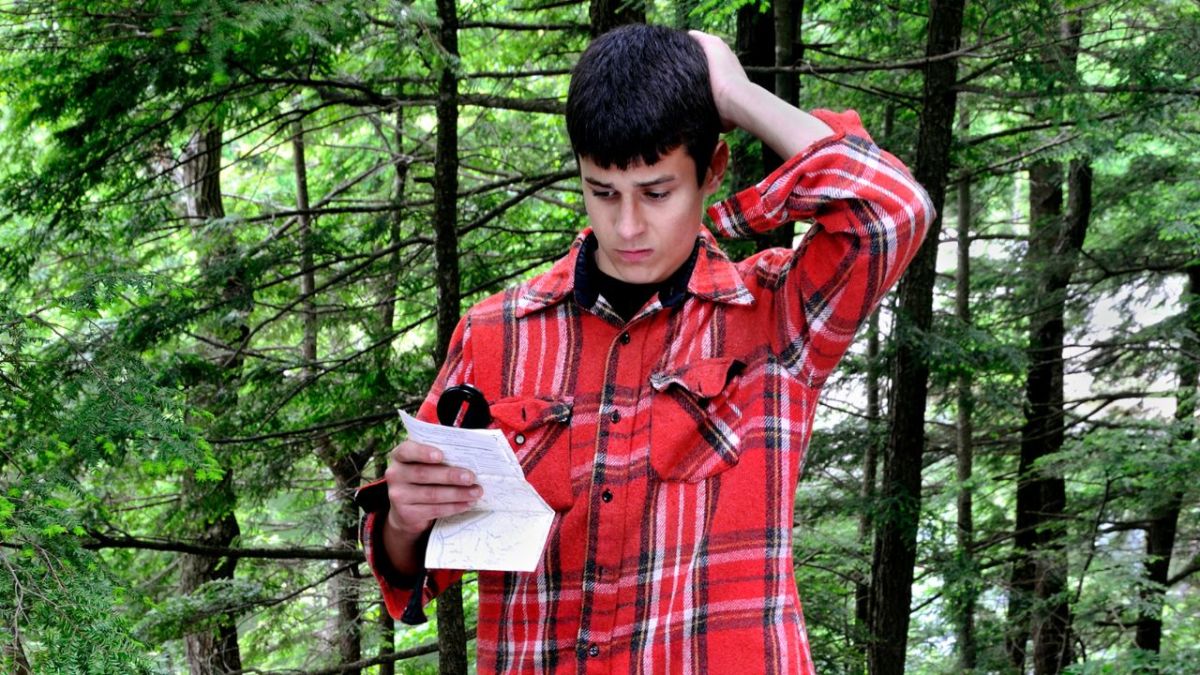
14 Dos and Don'ts if you get lost in the forest
👉 The key facts from this guide
- Stay calm and avoid panic. Sit down and gather yourself before acting.
- Trace back your initial steps if you are sure you are not too far off from the main path.
- Be alert and pay attention to your surroundings, including animal tracks and weather patterns.
- Leave a trail to mark your path and make it easier for rescue teams to find you.
- Avoid getting wet, especially in cold environments or environments with large temperature fluctuations.
- Keep all items you have, as they could be useful in a survival situation.
For whatever reason, one day, you might find yourself in an outdoor survival situation.
Maybe you were on a trip with family or friends, one thing led to another, and before you knew it, you became lost.
When this happens, a million things will race through your mind.
Things like:
- Where did I come from?
- What did I do wrong?
- I should have gone left instead of right.
- Should I keep going in this direction, or should I go in that direction, or should I sit and wait for someone to find me?
From the beginning, it is important to adopt a survivor's mindset.
This means that there are things you should do and things you should not do to stay energized and safe.
Here are 14 dos and don'ts to follow if you find yourself in a survival situation in the woods.
What to do if you get lost in the woods?
The first thing that happens when you get lost is inevitably panic.
This is completely natural, since it is an unsettling feeling not to know where you are.
Or which direction to take. Or if no one can hear you anymore.
We humans no longer know how to be disoriented.
The best thing you can do when this happens is to stop, sit down, and gather yourself.
Panic leads to bad decisions that only worsen a situation.
Take a break and recognize that this is not the time to criticize or pity yourself.
There will be time for that when you are back home. You need a motivating spirit from now on.
Give your best to maintain a positive and productive mindset.

1. Trace your steps back
There are situations in which tracing your steps back is not recommended.
For example, if you choose the wrong direction, you will get even more lost.
However, if you are not too far from the main trail, have navigation tools, or can determine a safe direction, it may be the best option to trace your steps back.
If you succeed, it may be a piece of cake to get back on the right trail.
2. Assess the situation
When you have reached a point where you know you are lost and will probably spend the night under the stars, it's time to assess the situation well.
Gather all the supplies you have. This means turning every bag inside out.
Follow the 3-rule to prioritize what you need to do and to keep your mind busy with productive tasks.
Also listen to your gut. If you have a nagging feeling that something's not right, be attentive and proceed cautiously.
3. Heighten your perception
When you're in the woods, you're just another animal in the woods - and animals only stay alive when they're constantly vigilant.
As you move, always be aware of what's behind and in front of you.
Use your peripheral vision (the owl eyes) to scan the sides as you walk.
Pay attention to animal tracks and feces. Avoid areas where animals are likely to be, such as where they eat or drink.
Pay attention to the story nature tells: bird songs, animal behavior, weather patterns, etc.
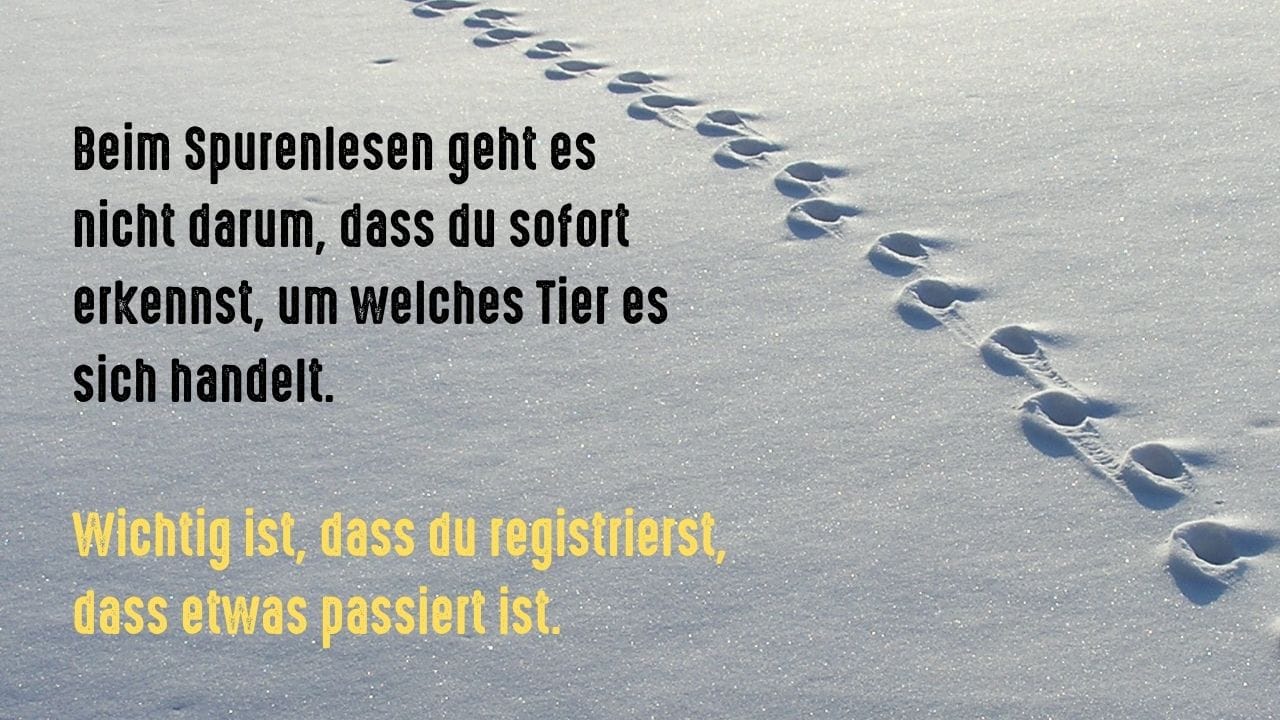
4. Leave a trail
You should use this tactic from the beginning of the journey to avoid getting lost altogether or further.
With the technique, you use everything at your disposal to mark the path taken.
Trees can be marked with a knife, branches can be bent or broken, arrows can be drawn or signal bands hung.
It is helpful to place these marks as visibly and directionally as possible.
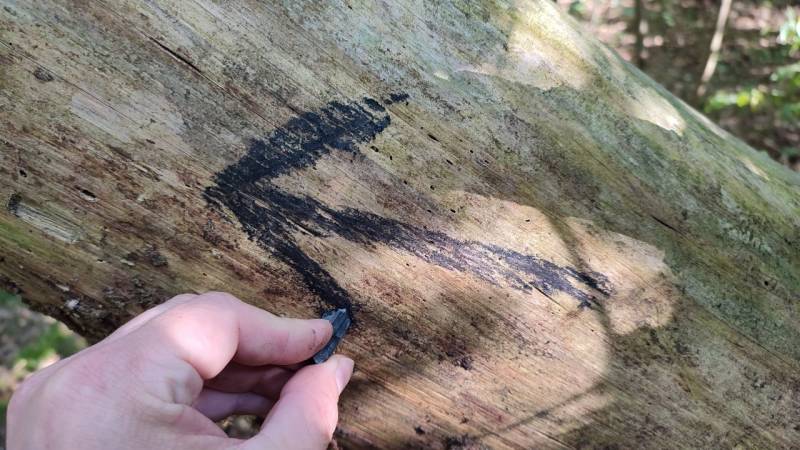
5. Stay with a vehicle
This advice applies to many cases, but it strictly depends on the circumstances.
However, if you have gotten lost and a vehicle is available (car, boat, airplane, etc.), in general, it is best to stay with the vehicle.
There are two reasons for this.
- The first is that the vehicle provides resources like shelter.
- The second reason is that a vehicle is much easier for a rescue team (e.g., from an airplane) to spot than a person.
But now, imagine a situation where a person knows the direction to rescue. They have supplies, skills, and abilities to move safely. What to do?
Then the person should decide whether to try to rescue themselves or not.
Therefore, always make sure to pack an auto-survival kit, so you have the necessary items for survival.
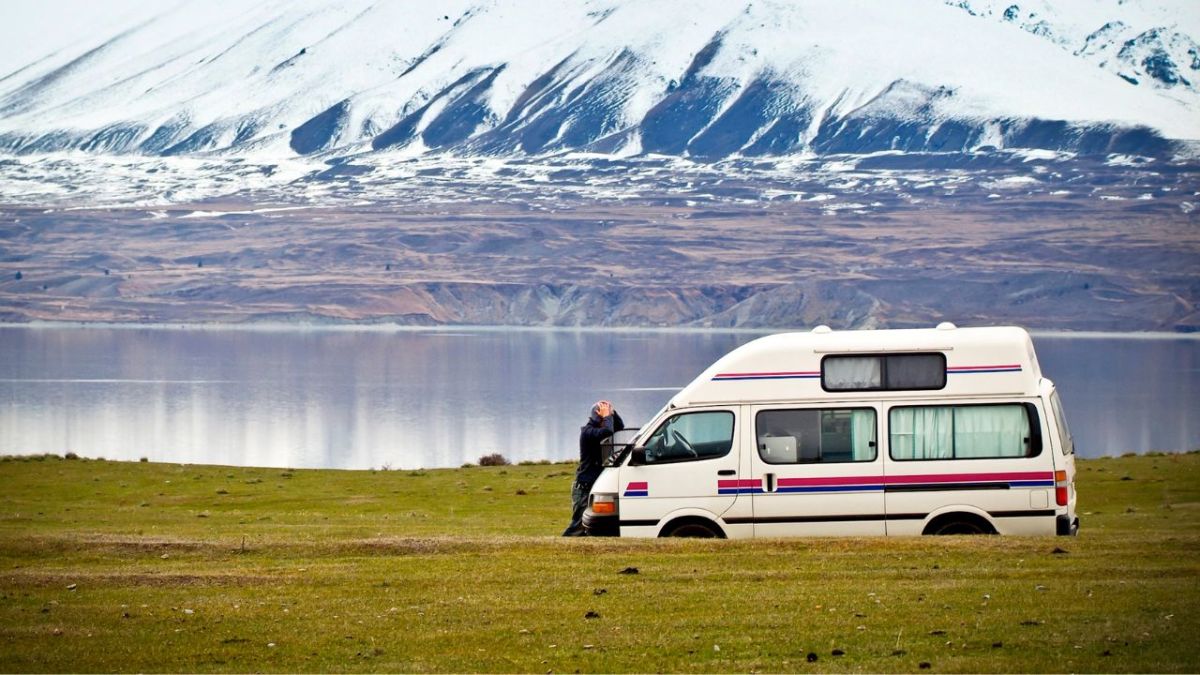
6. Make noise while moving
Making noise while walking through the forest is a precautionary measure when dealing with predators (mainly in bear country). One thing you would rather not do is surprise an animal that can be dangerous to you.
In Germany, you should also do this because wild boars and wolves can show up as well.
But this tactic isn't just for predators. While you might feel lost, there could be people just over the next hill or around the next bend.
Singing or making noise can draw attention to yourself.
7. Keep your hands to yourself
When walking through the forest, keep your hands to yourself.
From poisonous plants, biting insects, thorns, snakes, and anything else that hides in plain sight, it's best to keep your hands to yourself.
Remember, your hands are your most important tools. You need them for countless purposes, so they deserve special protection.
What not to do when lost in the woods
8. Don't run
Running when you first get lost only serves to give in to your panicked feelings.
Don't do it because running in panic will likely result in you breaking all your bones.
Exception: unless there is an immediate threat to safety and life.
Running fast dramatically increases the likelihood of injury, from which you may or may not be able to recover.
Almost everything in a survival situation should be done slowly and consciously to achieve the safest result.
9. Don't eat or drink what animals consume
Consuming what animals eat is one of those survival myths that is false.
Animals are used to drinking and eating from the environment in which they live.
Just because they can do, not mean it is safe for humans.
Always take the steps to make water drinkable, and make sure to clearly identify food sources that are safe for human consumption.
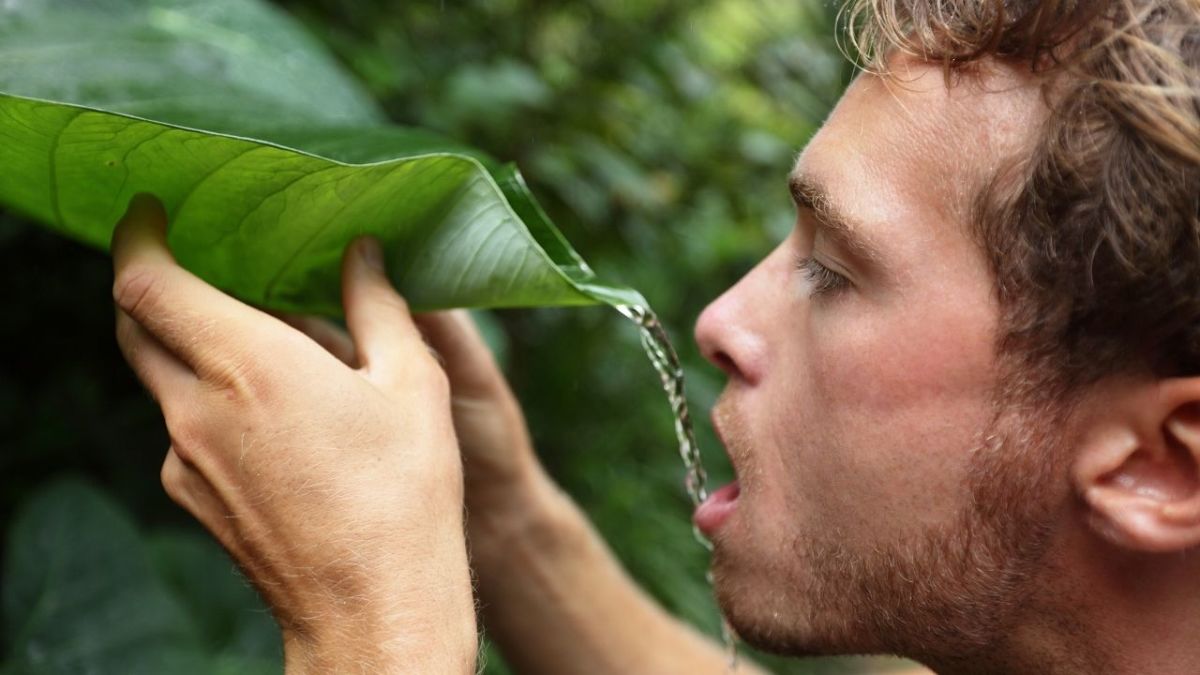
10. Stay away from the edges
When you come to a lookout on a hill or cliff, stay away from the edges. If a person becomes dizzy or disoriented, they may lose their balance.
Furthermore, there may not be much soil or rock under these areas. It can easily give way under the weight of a person.
The same goes for walking along river banks that have been undercut by the current.
11. Don't climb over a tree trunk
It's not a good idea to climb over a tree trunk without knowing what's on the other side.
Sounds strange at first, right? But look:
Tree stumps can hide lying animals, such as snakes, or holes that can easily twist an ankle. When encountering a tree stump (or any other object), it is a safe practice to take a moment to look before stepping on it.
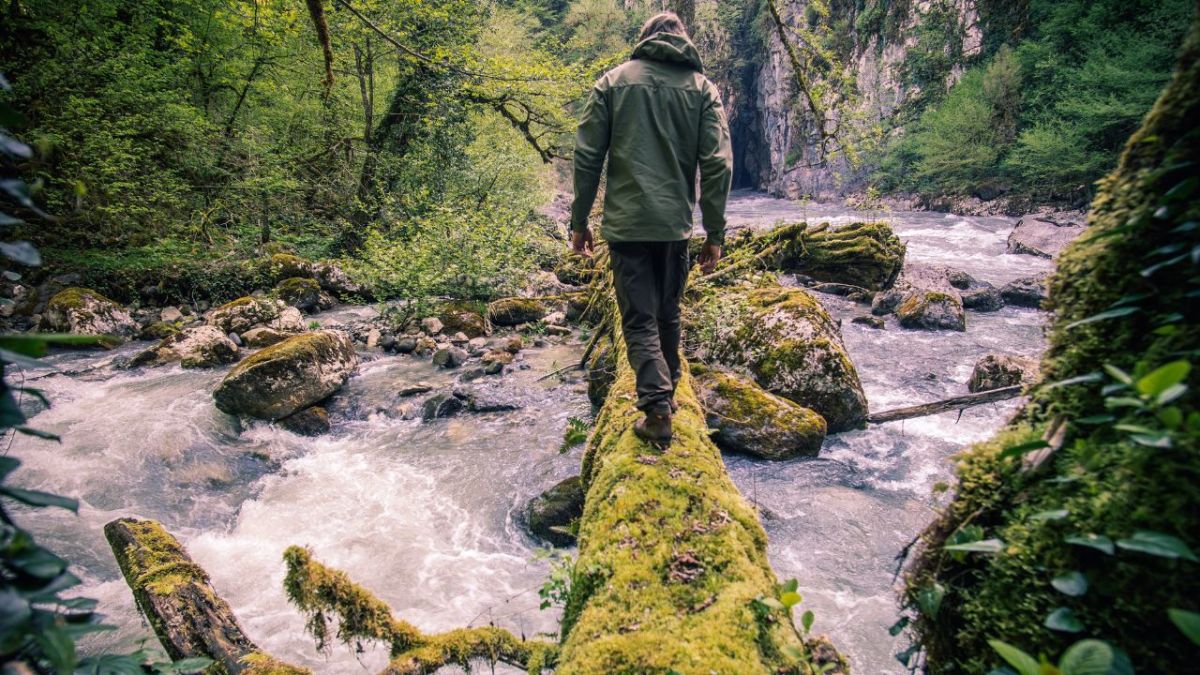
12. Avoid water, stay dry
While water is essential for drinking, you should keep yourself away from it.
Especially when you are in a cold environment or an environment with large temperature swings. Then it is never a good idea to get wet.
It may seem obvious, but it is also easily forgotten, especially on a small scale.
Walking or wading through a shallow stream seems ok, right?
Unfortunately not! While only a part of the clothing gets wet, this can still have large negative effects once low temperatures occur.
13. Avoid strong odor
The smell of cooked food attracts predators. If you want to cook quickly and safely, dispose of the remains by burying them.
Furthermore, do not keep food in your tent/tarp or erected shelter, but store them safely in another place, far away from your sleeping area.
There was a case in South Africa where teenagers in a wilderness camp did not follow the ranger's advice to have no food in their tents.
A teenager who had kept food in his tent was bitten in the face by a hyena, which followed the smell of food.
Wash your hands and brush your teeth more or less to ensure that the smell of meat doesn't stick to you before going to sleep.
If you deem it necessary, let a fire burn all night.
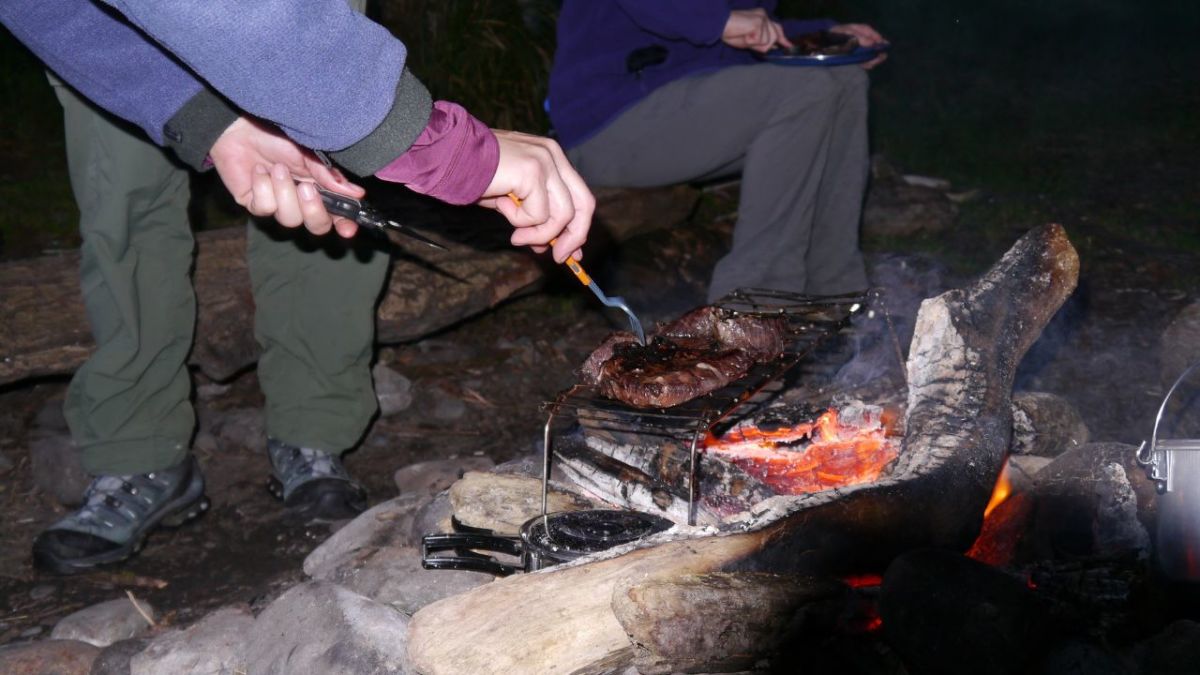
14. Never throw anything away
Even if something appears completely useless, I recommend keeping it for as long as possible.
In a survival situation, what you carry is all you possess. And you never know when or how something may be used.
Furthermore, gather resources along the way. These may not be available at your destination.
Summary: Work Your Way Through
There are many things to consider in a survival situation. If you don't, things can get tricky pretty quickly.
My above tips are important when you're in the woods. But keep in mind: in a desert or a snowy tundra, different tips apply. Region, season, and prior knowledge all play a major role in survival.
Wherever you may be: slow down, think carefully about your actions, and take care of yourself!


Author of the guide
Martin Gebhardt
Hey, I'm Martin. On my blog, you will learn the basics and numerous details about living in the wild. I think survival, bushcraft and the good life in nature are the keys to happiness. Find me here on Instagram or on YouTube. You can find more about my mission on the About Me page.
Was this guide helpful?
37 people found this guide helpful.
4.89 out of 5 points (38 Ratings)
Comments (0)
This post may contain affiliate links. So if you click on the links and make a purchase, I will receive a small commission at no additional cost to you. Click here, to learn more about it.


